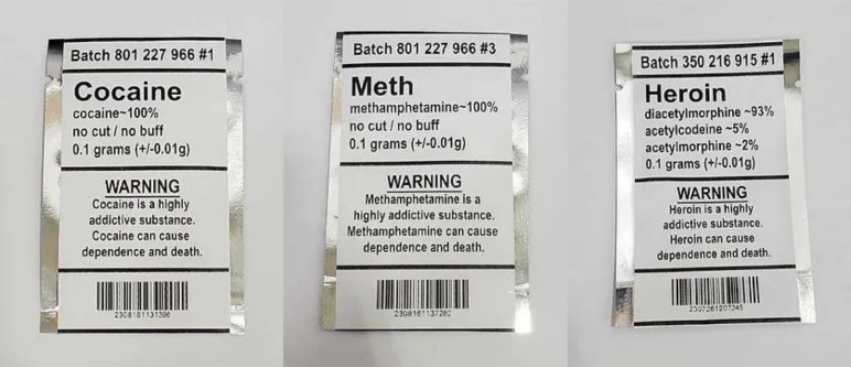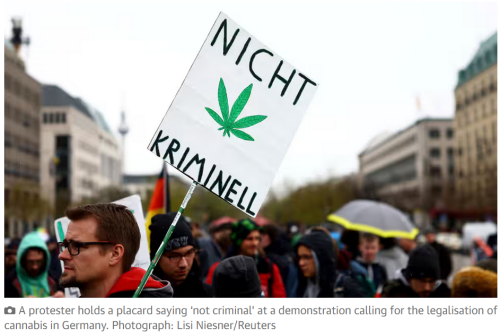Given the total lack of empirical literature describing the effectiveness of compassion clubs as an overdose prevention initiative, the project was subjected to evaluation throughout its operation. Herein we report on the impact of DULF compassion club enrolment on non-fatal overdose rates amongst program participants, and thereby seek to contribute to the literature specific to compassion clubs and non-prescriber-based models of safe supply.
-
-
Germany’s parliament has passed a law allowing individuals and voluntary associations to grow and hold limited quantities of cannabis, making it the latest in a small group of countries and jurisdictions to legalise the drug, at least in part.
Read more in the Gaurdian -
-
-
19 government officials and high level experts from around the world describe in great detail the misery, the ineptitude, the corruption and the many other horrors we inflict on ourselves and the whole world via an eternal belief in the policy of drug prohibition.
-
“I was removed from my position as Chief Advisor of the Advisory Council on the Misuse of Drugs (ACMD) in October 2009. A decade later, UK drug policy has done nothing but go backwards. We are currently in a worse position now than we were 10 years ago. However, there is a path to a brave new world. Back in 2009, I was making it clear to the UK Government that the evidence that we had back then was that cannabis was less harmful than both alcohol or tobacco. ” – Professor David Nutt
https://drugscience.org.uk/groundhog-decade-not-brave-new-world/ -
Changing The Narrative is a network of reporters, researchers, academics, and advocates concerned about the way media represents drug use and addiction. Our mission is to help journalists and opinion leaders provide accurate, humane, and scientifically-grounded information in this contested terrain. We offer expert sources —including people with lived experience of the issues — and up-to-date, fact-checked, and evidence-based information on news and controversies.
https://www.changingthenarrative.news/ -
-
As we reported previously, scientists from the University of New Mexico have been studying how access to marijuana may help alleviate the opioid crisis, declared a national emergency by President Trump. Their study has now been published in the journal PLOS One, with the researchers concluding that there is “clinically and statistically significant evidence” that increased cannabis use led to patients cutting down on opioids and improved their quality of life.
The study analyzed the health data of 66 patients who were using opioids habitually to manage their severe chronic pain. 37 of the patients were enrolled in a medical marijuana program between 2010 and 2015 while 29 patients in the control group were not.
The scientists found that patients using cannabis were 17 times more likely to stop their prescribed opioids and five times more likely to lower their daily dosage of opioids. On average, they cut their doses in half. Comparatively, the patients not enrolled in the medical marijuana program actually increased their opioid usage by more than 10%.
http://bigthink.com/paul-ratner/how-legalizing-marijuana-may-end-the-opioid-crisis


